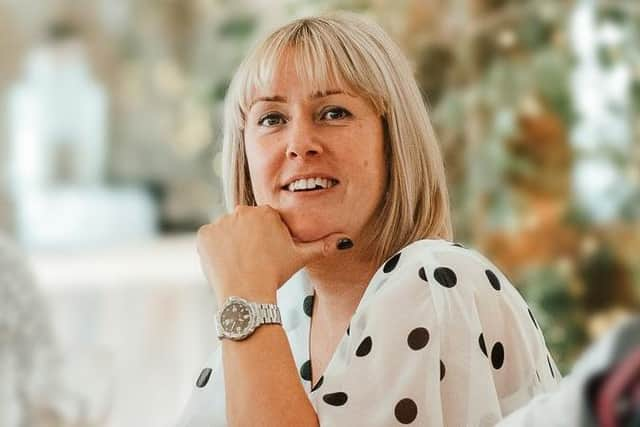Why Artificial Intelligence (AI) cannot replace human creativity - Joanne Waddington
Creativity is big business. The Creative Industries Sector Vision launched this month sets out a shared ambition for the UK Government and industry to grow the Creative Industries by £50bn and create one million extra jobs by 2030; and confirms the Government’s commitment to the Creative Industries as a high-growth priority sector.
Leeds is no doubt, one of the most creative cities in the UK, with global impact. It has attracted digital industries, TV production houses, and Channel 4 News. Here, ThinkOTB grew from a lifestyle business to a marketing and innovation powerhouse that supports some of the largest organisations in the world in the banking, fintech, food and public services sectors. In 2020, it won the Queen’s Award for Enterprise for International Trade thanks to its outstanding sales growth overseas. Our strength is reflected in our global clients, including PZ Cussons, Visa, and the National Grid.
Advertisement
Hide AdAdvertisement
Hide AdThe secret of its success? Creativity. ThinkOTB was founded by Mark Davies and Tina Catling, authors of two seminal books on the importance of creativity and innovation: Think! published in 2002, and Making Waves, published in 2011.


They created theoretical techniques on how challenges in business can be solved by thinking about things differently; literally, thinking outside the box.
In the last 30 years, we’ve seen many digital platforms and tools come and go. But our approach to creativity is still the same one that is applied to our clients today.
So, how do we feel about AI?
There’s an acceptance that automation improves efficiencies in manual labour or manufacturing, it’s clear too how it can help repetitive tasks in accountancy say, but there is a resistance to it in the refined creative industries.
Advertisement
Hide AdAdvertisement
Hide AdA recent story, Artificial Intelligence is Coming for Creative Workers, warns how wrong the innovation charity Nesta was when it concluded in 2015 that creativity is that which is incapable of automation, so somehow immune.
Over the last century, we have gone through incredible automation in every sector – including the creative sector. Today, AI is already used to help you decide what to watch or listen to next on a TV app or Spotify. And it’s increasingly used in the act of creation itself. The recent strike of the Writers Guild of America called for the ‘regulated use of AI’ in the writing of TV shows. And, more locally, there was uproar from artists and designers, when the Bradford Literature Festival used AI in the design of its posters.
AI poses other questions regarding employment and sustaining human talent. The real concern for us perhaps is, can it take over our jobs completely – what about say, a copywriter’s job?
ChatGPT can write poetry, but whether it is any good or has value is another matter. Its pre-programmed rules create the impression of creativity. AI is built from data, not from original thoughts. It’s not filtered through human perceptions – our humanity.
Advertisement
Hide AdAdvertisement
Hide AdCopywriters don’t necessarily have to be poets, but their creativity – their humanity - is vital. At ThinkOTB, creativity is our USP. It’s how we engage, entice and influence. It’s the crux of all marketing. It can open new markets, launch new services, and ultimately put businesses on the global map in our noisy digital age.
Creativity has always been a part of what separates humans from machines. For it, we need imagination. Something that is still somewhat a mystery of the human brain. We know we need human connection – what we see, hear, and feel to form ideas.
So, there’s a balance to be had. Automation is, we’ve seen, a powerful driver across industry.
A UK study by Henley Business School predicts AI assistants will give two weeks per year back to workers by 2030. You could argue, by taking over the more mundane, repetitive tasks, AI could free us all up to be more creative.
Advertisement
Hide AdAdvertisement
Hide AdThe risk is when we start allowing or thinking that AI can replace human creativity.
A recent study found AI cannot support all skills essential for idea development. Things like inspiring peers, exchanging ideas, discussing, reflecting, personal interactions, improvisation, and daydreaming are all important for idea generation.
AI can offer better efficiencies, and things like pattern recognition is useful in just about every industry from healthcare to retail. So, there’s no doubt AI has the potential to enhance and augment creativity by providing new tools and techniques for our industry.
But it is nothing without the human behind it. Nothing can replace the emotional intelligence and subjective experience that humans bring to the creative process.
Joanne Waddington is managing director of ThinkOTB.